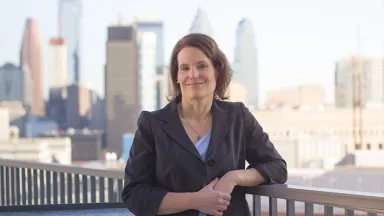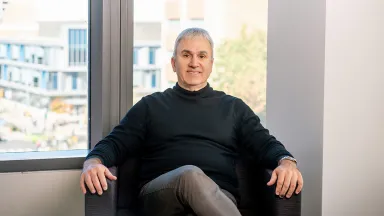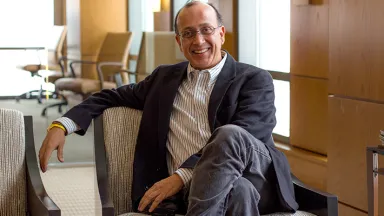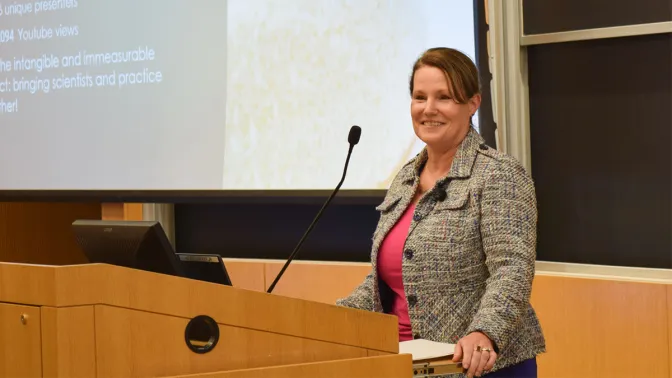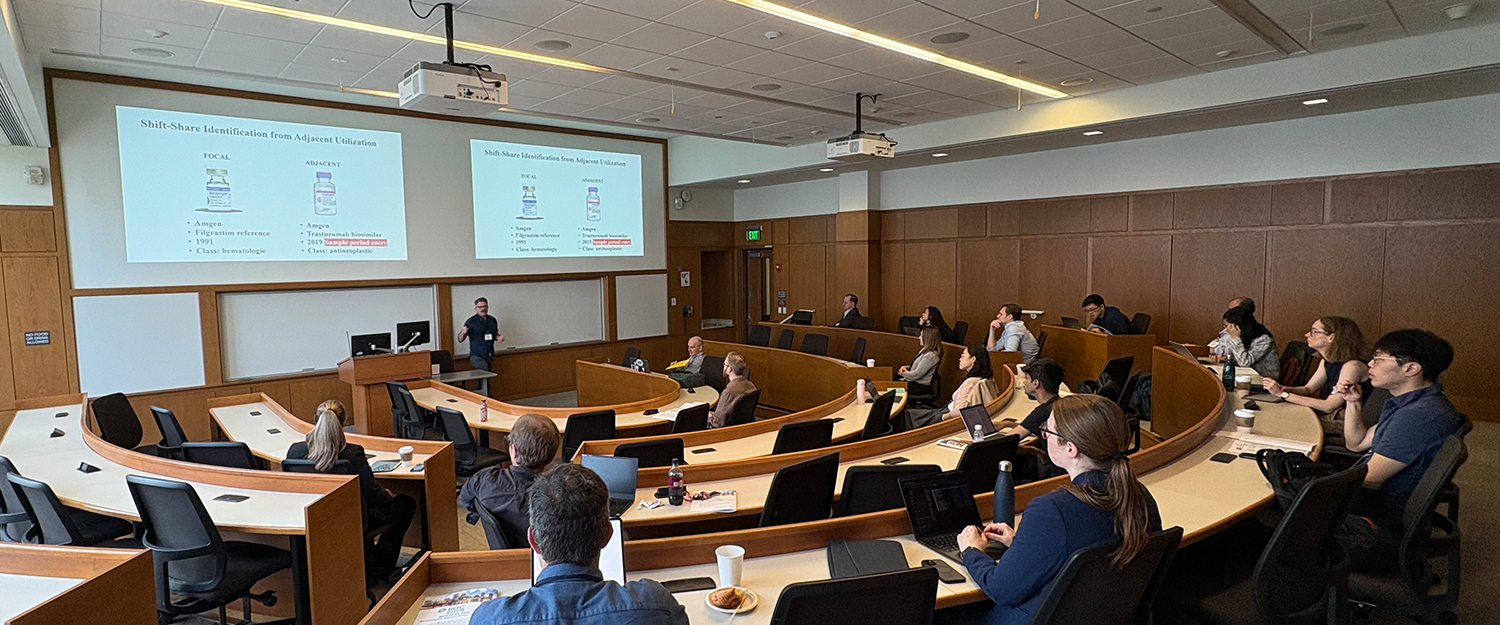
Economists Gather at LeBow Amid an Open, Scholarly Atmosphere
Economists from around the world gathered on Drexel’s University City campus as the University hosted the 23rd annual International Industrial Organization Conference (IIOC), held in Gerri C. LeBow Hall in early May.
A wide-ranging gathering on topics in the economics subfield of industrial organization, the IIOC attracts economists concerned with antitrust, mergers, pricing structures and anticompetitive behaviors, including chief economists with regulatory bodies such as the Federal Trade Commission and the Securities and Exchange Commission.
This year’s conference featured 270 paper presentations and was attended by 350 participants from universities, technology and consulting firms, government agencies and nonprofits. One notable attendee: Drexel President-elect Antonio Merlo, PhD, a political economist, met with LeBow Dean and R. John Chapel Jr. Dean’s Chair Vibhas Madan, PhD, and several student volunteers.
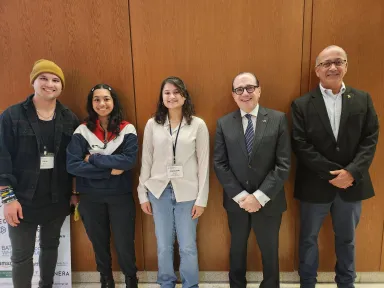
Two faculty members from Drexel’s School of Economics served as local organizers: Professor of Economics Konstantinos Serfes, PhD, and Professor of Economics Teresa Harrison, PhD. Each chaired a presentation session: Drivers of Productivity for Serfes, and Nonprofits, Education and Media for Harrison.
“Because it’s a pretty specialized conference for industrial organization economists, it’s a great place to get feedback and really thoughtful comments on your work,” Harrison says, adding that Drexel previously hosted the conference in 2016.
Serfes presented his paper, “Peer Effects and Worker Visibility in Team Production: Evidence from NBA Rookies,” which draws from an unexpected source of economic insights: professional athletes drafted to play in the National Basketball Association.
“We find that rookies placed on higher quality teams receive less playing time than rookies of similar ability placed on lower quality teams. We then find that reduced playing time leads to significantly lower individual performance, which in turn lowers future earnings,” he says. “The findings of our study have broader implications for team-based industries beyond professional sports, such as high-tech industries, finance, law and consulting, where early exposure and visibility critically shape career outcomes and long-term earnings.”
Harrison also presented her paper, “Information in the Nonprofit Sector: What Do Donors Value?” Developed in partnership with Charity Navigator and co-authored with Jennifer Mayo of the University of Missouri, the paper examines how donors respond, through donating or taking other actions, to receiving more information about charitable organizations.
“Our results suggests that donors tend to respond positively to these rankings during salient times, particularly during Giving Tuesday,” the charitable fundraising event held annually following Thanksgiving, Harrison says.
In addition, Assistant Professor of Economics Ohyun Kwon, PhD, presented his paper, “On the Estimation of Clean Technology using Firm-level Production and Emission Data,” and Serfes, Harrison and Kwon also served as discussants for papers presented by other author attendees.
Both Harrison and IOS president Judith Chevalier, PhD, in a letter after the event, noted the support that student volunteers from LeBow’s PhD in economics, MS in economics and undergraduate programs provided, along with technical support and guidance from LeBow’s Information Technology team.
“Our students did great work behind the scenes and were able to see academic scholarship in action,” Harrison says.
